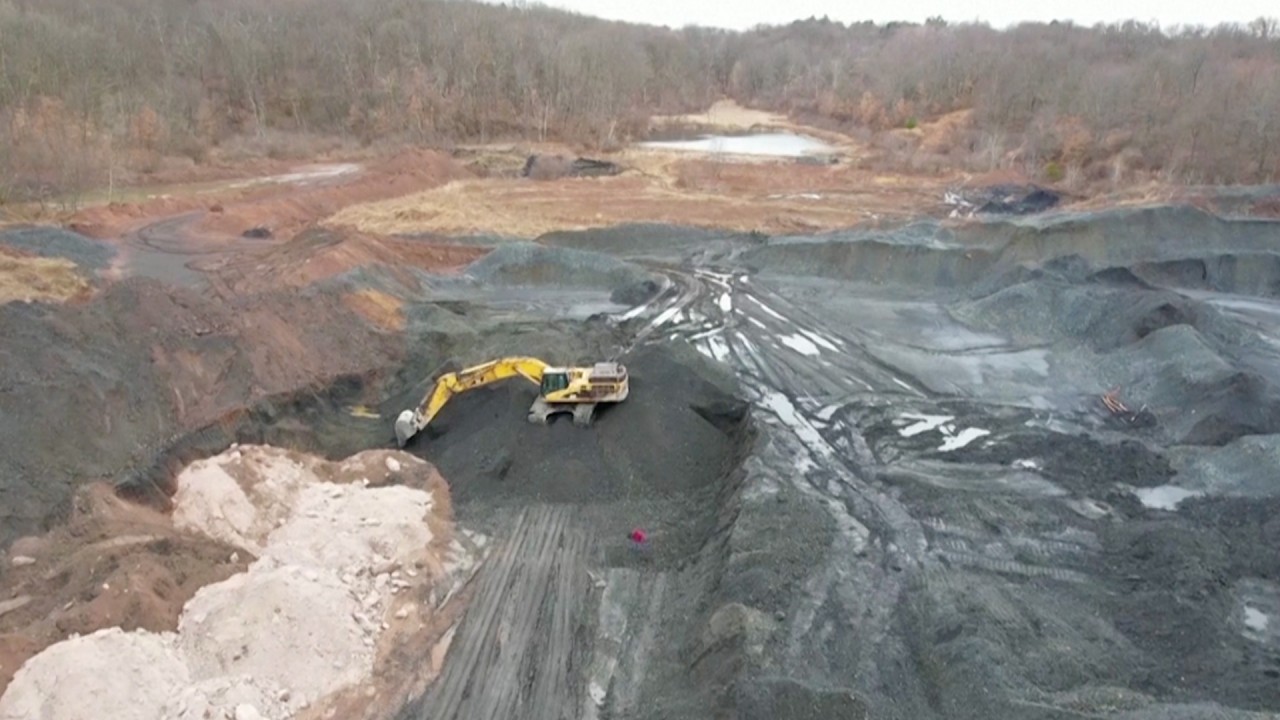
03:09
US company plans to use bitcoin mining to clean up coal waste

A man who accidentally threw away 8,000 bitcoin, now worth US$181 million, has hatched a US$11 million master plan to get them back.
James Howells’ life changed when he threw out a hard drive about the size of an iPhone 6.
Howells, from the city of Newport in southern Wales, Britain, had two identical laptop hard drives squirrelled away in a drawer in 2013. One was blank; he says the other contained 8,000 bitcoin – now worth about US$181 million, even after the recent cryptocurrency crash.
He’d meant to throw out the blank one, but instead the drive containing the cryptocurrency ended up going to the local dump in a garbage bag.
Nine years later, he’s determined to get back his stash, which he mined in 2009.
Howells, 36, is hoping local authorities will let him stage a hi-tech treasure hunt for the buried bitcoin. His problem is that he can’t get into the dump.
For almost a decade, Newport’s city council has denied his requests to dig for his hard drive, saying it would be expensive and environmentally damaging, but Howells is not deterred.
His new US$11 million proposal is being backed by venture-capital funding to search up to 110,000 tons of trash. He hopes presenting it to the council in the coming weeks will persuade it to let him finally try to recover the hard drive.
Looking for a hard drive among thousands of tons of garbage might seem like a Herculean task, but Howells, a former IT worker, says he believes it’s achievable through a combination of human sorters, robot dogs, and an artificial-intelligence-powered machine trained to look for hard drives on a conveyor belt.
His plan has two versions, based on how much of the landfill local authorities would allow him to search.
By his estimates, the most extensive option would take three years and involve scouring 100,000 metric tons – or about 110,000 tons – of garbage at a cost of US$11 million. A scaled-down version would cost US$6 million and take 18 months.
He has assembled a team of eight experts including one adviser who worked for a company that recovered data from the black box of the crashed Columbia space shuttle.
“We’re trying to achieve this project to a full commercial standard,” Howells said.
Howells said machines would dig up the rubbish, which would then be sorted at a pop-up facility near the landfill.
Human pickers would sift through it, along with a machine from a company in Oregon and AI algorithms will spot hard drives that look similar to Howells’. A mechanical arm will then pick out any objects that could be contenders.
Howells says that as long as the platter isn’t cracked, there’s an 80 per cent to 90 per cent chance the data will be retrievable.
Howells says he tries not to think too much about what his share of the money would allow him to do, if the hard drive is ever found in working order. “Otherwise,” he said, “you just drive yourself crazy.”